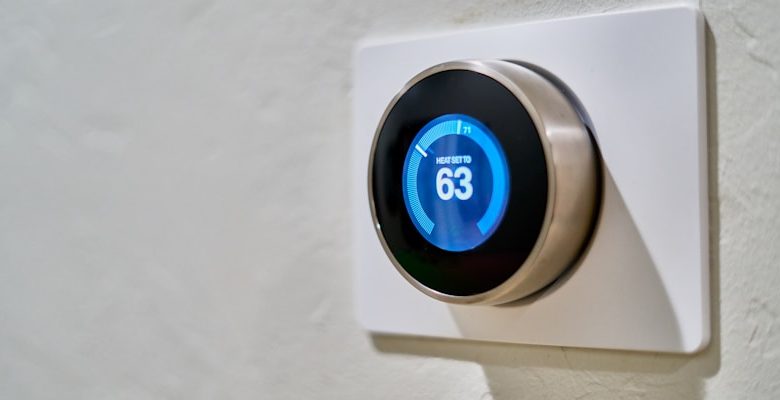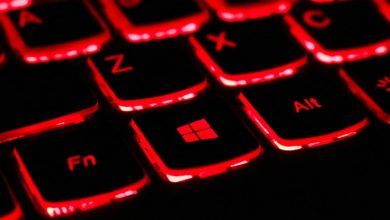The Role of Smart Contracts in Decentralized Autonomous Organizations (DAOs)

- Understanding Smart Contracts in the context of DAOs
- The benefits of using Smart Contracts in DAOs
- Challenges and limitations of Smart Contracts in DAOs
- How Smart Contracts ensure transparency and trust in DAOs
- The future potential of Smart Contracts in shaping DAOs
- Best practices for implementing Smart Contracts in DAO governance
Understanding Smart Contracts in the context of DAOs
Smart contracts play a crucial role in the functioning of Decentralized Autonomous Organizations (DAOs). These contracts are self-executing agreements with the terms of the agreement directly written into code. They automatically execute and enforce the terms of the agreement when predetermined conditions are met. Smart contracts are deployed on blockchain networks, making them secure, transparent, and tamper-proof.
In the context of DAOs, smart contracts are used to automate decision-making processes and facilitate the governance of the organization. DAOs are decentralized entities that operate without a central authority, relying on smart contracts to execute functions such as voting, fund allocation, and membership management. These contracts ensure that decisions are made based on predefined rules and are carried out without the need for intermediaries.
Smart contracts in DAOs are designed to be transparent and immutable, meaning that once deployed, they cannot be altered or tampered with. This feature ensures the integrity of the organization’s operations and provides a high level of trust among members. Additionally, smart contracts in DAOs can help reduce the risk of fraud, corruption, and human error, as they operate based on code rather than human intervention.
Overall, smart contracts play a critical role in enabling the efficient and transparent functioning of DAOs. By automating decision-making processes and ensuring the integrity of operations, these contracts help DAOs operate smoothly and securely in a decentralized environment. As DAOs continue to grow in popularity, the importance of smart contracts in their operations is expected to increase significantly.
The benefits of using Smart Contracts in DAOs
Smart contracts play a crucial role in the operation of Decentralized Autonomous Organizations (DAOs) by automating processes and ensuring trustless interactions among participants. There are several benefits to using smart contracts in DAOs:
- Transparency: Smart contracts are visible to all participants within the DAO, providing transparency and accountability in decision-making processes.
- Security: Smart contracts are tamper-proof and secure, reducing the risk of fraud or manipulation within the organization.
- Efficiency: Smart contracts execute automatically once predefined conditions are met, eliminating the need for manual intervention and streamlining operations.
- Cost-effectiveness: By removing intermediaries and automating processes, smart contracts reduce transaction costs and operational expenses for DAOs.
- Decentralization: Smart contracts operate on a decentralized network, ensuring that no single entity has control over the organization, promoting a more democratic and inclusive governance structure.
Challenges and limitations of Smart Contracts in DAOs
While smart contracts offer many benefits to Decentralized Autonomous Organizations (DAOs), there are also challenges and limitations that need to be considered. One of the main challenges is the complexity of smart contract coding, which requires a high level of technical expertise. This can be a barrier for those without a strong background in programming.
Another limitation is the lack of flexibility in smart contracts. Once a smart contract is deployed on the blockchain, it cannot be easily changed. This can be problematic if there are bugs or errors in the code that need to be fixed.
Security is also a concern when it comes to smart contracts in DAOs. If there are vulnerabilities in the code, it can lead to hacks and theft of funds. Developers need to be vigilant in auditing and testing smart contracts to ensure they are secure.
Additionally, scalability is a challenge for smart contracts in DAOs. As the number of transactions increases, the blockchain network can become congested, leading to higher fees and slower processing times. This can limit the growth and adoption of DAOs that rely on smart contracts.
In conclusion, while smart contracts play a crucial role in DAOs, there are challenges and limitations that need to be addressed. By understanding these issues and working to overcome them, DAOs can harness the full potential of smart contracts for decentralized governance and decision-making.
How Smart Contracts ensure transparency and trust in DAOs
Smart Contracts play a crucial role in ensuring transparency and building trust within Decentralized Autonomous Organizations (DAOs). By utilizing blockchain technology, smart contracts enable automated execution of predefined rules and agreements without the need for intermediaries. This transparency is achieved through the immutable and publicly verifiable nature of blockchain transactions. Smart contracts help DAOs to operate in a trustless environment, where members can rely on the code itself rather than depending on human intervention.
One of the key advantages of using smart contracts in DAOs is the elimination of potential conflicts of interest and the risk of manipulation. Since smart contracts are executed automatically once the predefined conditions are met, there is no room for subjective interpretation or bias. This ensures that all transactions within the DAO are carried out fairly and transparently, fostering a sense of trust among members.
Moreover, smart contracts enhance the efficiency of decision-making processes within DAOs by streamlining voting mechanisms and governance structures. Through the use of smart contracts, DAO members can securely participate in voting processes and delegate their voting power without the risk of fraud or manipulation. This not only increases the overall transparency of the organization but also promotes active participation and engagement among members.
In conclusion, smart contracts are instrumental in promoting transparency and trust within Decentralized Autonomous Organizations. By leveraging blockchain technology and automated execution, smart contracts enable DAOs to operate in a secure and trustless manner, fostering a sense of transparency and accountability among members. This, in turn, helps to build a strong foundation for the growth and sustainability of DAOs in the ever-evolving landscape of decentralized governance.
The future potential of Smart Contracts in shaping DAOs
Smart contracts have the potential to revolutionize the way decentralized autonomous organizations (DAOs) operate in the future. By automating the execution of agreements and transactions without the need for intermediaries, smart contracts can streamline the decision-making process within DAOs and enhance transparency and accountability. With the ability to self-execute based on predefined conditions, smart contracts can help DAOs enforce rules and protocols more efficiently, reducing the risk of human error or bias in governance processes. Additionally, smart contracts can facilitate the integration of external data sources and oracles, enabling DAOs to interact with the external environment in a secure and automated manner. This opens up new possibilities for DAOs to expand their scope of operations and engage in more complex activities, such as decentralized finance (DeFi) protocols, prediction markets, and supply chain management. As the technology behind smart contracts continues to evolve and mature, DAOs are poised to leverage their full potential in reshaping the future of decentralized governance and organizational structures.
Best practices for implementing Smart Contracts in DAO governance
Implementing Smart Contracts in DAO governance requires careful consideration and adherence to best practices to ensure the smooth operation of decentralized organizations. Here are some key guidelines to follow:
- Ensure smart contracts are secure: Prioritize security in the development of smart contracts to prevent vulnerabilities and potential exploits.
- Use standardized code: Utilize well-tested and widely accepted smart contract frameworks to reduce the risk of errors and increase interoperability.
- Implement multi-signature functionalities: Enable multi-signature capabilities to require multiple approvals for critical decisions, enhancing transparency and accountability.
- Establish clear governance rules: Define clear rules and procedures within smart contracts to govern decision-making processes and resolve disputes effectively.
- Regularly audit smart contracts: Conduct regular audits of smart contracts by reputable third-party security firms to identify and address any potential weaknesses.
- Provide adequate documentation: Document the functionality and logic of smart contracts comprehensively to facilitate understanding and troubleshooting for DAO participants.
By following these best practices, decentralized autonomous organizations can leverage the power of smart contracts to streamline governance processes and enhance transparency and efficiency in decision-making.



